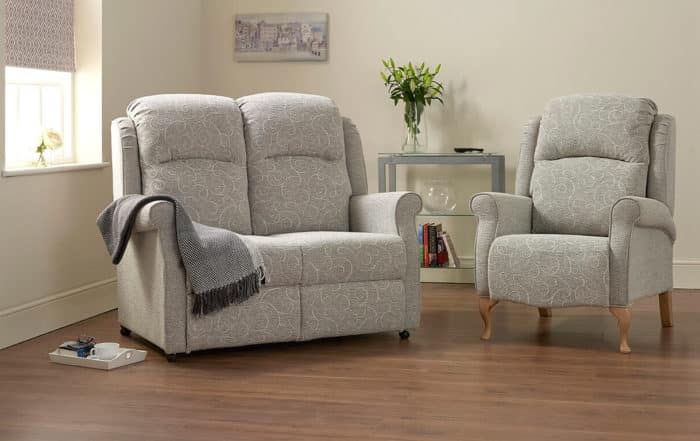How to Help Someone with Mobility Impairment
Social Links
Most of us take mobility for granted.
But so many of our daily functions – jumping out of bed, nipping into the shower, knocking up a quick dinner – rely on our ability to move around.
So of course, it can be concerning when someone close to us experiences a mobility issue.
Impaired mobility makes it harder to look after oneself and can add pressure onto loved ones who may be unsure exactly what help is needed.
Rest assured, there are a number of easy ways that loved ones can help family and friends with mobility issues, many of them simpler than you may have thought.
Read on, as we explain all you need to know about mobility impairment and helping loved ones struggling with mobility issues.
What is a mobility impairment?
Mobility issues take many different forms. In essence, however, a mobility impairment is a condition, injury or disability that limits or affects a person’s range of movement.
Mobility impairments can impact gross motor functions, walking for example, but can equally affect the ability to perform fine motor movements, such as picking objects up.
As a result, mobility impairment can prevent us from performing tasks that form part of the usual daily routine. Activities such as showering, driving and even getting out of bed can cause issues, which is why it is so important that we understand mobility impairments, and how best to cope with them when they arise.
What causes a mobility impairment?
Mobility impairments can have different causes, from age and injury to surgery and unexpected medical conditions.
As such, their onset can be sudden or gradual and impact may be temporary or permanent.
For example, somebody who breaks a leg will experience a sudden but temporary loss of mobility – a very different kind of mobility impairment to a person with arthritis in their knee joint, whose mobility is in gradual decline.
As well as the natural ageing process, several conditions can cause mobility impairments including neuromuscular disorders such as multiple sclerosis and spinal muscular atrophy, neurological issues including stroke or Parkinson’s and orthopaedic problems such as osteoporosis. Even heart conditions can unexpectedly cause mobility impairments.
With so many potential triggers, it is unsurprising that mobility impairment is one of the primary issues affecting the elderly. A recent Harvard study suggested that 41% of adults aged 65–79 years old experience some sort of mobility issue.
How to support someone suffering with a mobility issue?
As mobility impairments come in many different guises, figuring out how to help is not always straightforward.
Remember that experiencing mobility issues goes hand in hand with feelings of helplessness that naturally accompany a loss of independence. Coming to terms with reduced mobility can be a challenge, while constantly having to ask for help may feel overwhelming.
One of the best ways to help a loved one with a mobility impairment is by creating an environment in which they can feel comfortable.
Consider home improvements
A comfortable home environment may start with some simple home improvements. Conveniently placed grab bars and banisters make getting around a whole lot easier – while those with serious mobility impairments may want to consider ramps and stair lifts.
Equally, it’s worth bearing in mind that up to 80% of household falls happen in the bathroom – so it might be time to consider a redesign. Walk-in showers or wet-room style bathrooms, which remove the need for an awkward step up, are a particularly popular option.
Assist with specialist mobility furniture
If you’ve noticed a loved one struggling to get in and out of bed, or helplessly sinking into an armchair or sofa, it’s time to consider mobility furniture. Riser recliner chairs or mobility sofas make getting up and sitting down much easier and are better built for long sits than regular chairs. The motor massage function helps prevent aches and pains, while being able to regularly adjust seating positions improves circulation and decreases the risk of pressure sores.
Likewise, adjustable beds make life much easier for people with mobility impairment. The sit-up function means these are better suited to relaxing than regular beds. Adjustable beds ease physical demands on carers who help people with limited mobility change position when in bed and get in and out of bed.
For people with more serious mobility impairment, homecare beds and chairs are another option. These pair the functionality of hospital furniture with a more home-friendly aesthetic
Provide emotional support
It goes without saying that helping a loved one with a mobility impairment isn’t purely about home improvements. Providing emotional support is particularly important, especially as many people with mobility problems may also be feeling depressed, insecure or isolated. So open up to your loved one, encourage them to share their thoughts without pushing, and remind them that their physical impairment need not prevent them from enjoying a full and happy life.
That said, it doesn’t have to be all deep conversation. Simply being there for a mobility impaired loved one makes a huge difference. Whether it is tuning into a favourite TV programme, knocking up a cup of tea or just sitting together on the sofa, it is important to remember the impact your presence can make.
Ultimately, it’s important to remember that there are many simple ways you can help a loved one suffering from a mobility impairment. Need more advice? Why not give us a call on 01934 756444.
*This website contains general medical information. The medical information is not advice and should not be treated as such. Read our full Medical Disclaimer here.



